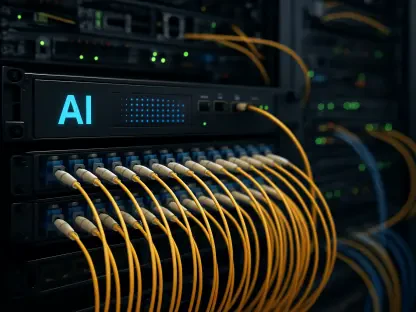The US tech industry represents a global powerhouse, constantly evolving to meet the demands of innovation and security. Yet, its progress is increasingly threatened by the deceptive tactics employed by North Korean IT workers. These operatives exploit vulnerabilities within tech firms, securing positions and redirecting funds to support their country’s illicit programs. In a high-stakes environment where cybersecurity is paramount, understanding these threats becomes crucial for future protection.
Overview of the US Tech Industry and Vulnerabilities
Currently, the US tech industry remains at the forefront of technological advancement, fostering innovation across various sectors. However, its vast digital landscape presents numerous cybersecurity challenges. With companies handling sensitive data and transactions, maintaining robust IT security is essential. Unfortunately, vulnerabilities persist, making firms susceptible to infiltration by foreign entities, notably from North Korea.
North Korea’s infiltration primarily impacts segments dealing with software development, cybersecurity solutions, and financial technologies. These areas are lucrative targets due to their high-value outputs and generally require skilled workforces that can be easily manipulated through digital deception.
Exploitation Tactics Employed by North Korean IT Workers
Utilizing False Identities and Securing Employment
North Korean nationals often mask their identities, presenting themselves as legitimate IT professionals to secure employment in global tech firms. This masquerade enables them to access sensitive data and networks, which poses a threat not only to the firms but also to national security. This deceit affects companies worldwide, undermining trust and reliability within the industry.
Laundering Cryptocurrency and Redirecting Funds
Cryptocurrency platforms provide North Korean operatives with a means to launder earnings efficiently, circumventing international sanctions. The funds redirected bolster North Korea’s cyber initiatives and weapon programs. Through these schemes, the Pyongyang regime finds financial backing for its illicit activities, posing a continued threat to global security.
Market Data on Infiltration and Financial Impact
Current and Projected Financial Implications
In recent years, North Korean IT workers have infiltrated hundreds of US firms, amassing significant funds. Their collective earnings have exceeded millions, substantially affecting the financial stability of these companies. Such substantial infiltration highlights the urgency of addressing this issue to prevent further economic losses.
Trends and Forecasts of North Korean Schemes
Patterns in North Korean infiltration are becoming more sophisticated, with operatives continuously adapting their methods. As technology evolves, it is anticipated that these schemes will grow more prevalent, targeting emerging tech sectors with novel tactics, emphasizing a need for proactive defensive measures.
Challenges and Solutions for US Tech Firms
Recognizing fraudulent operators among the workforce presents a significant challenge for tech firms. Advanced tactics make detection difficult, necessitating refined strategies for safeguarding company interests. Implementing robust verification processes and enhanced training programs can aid firms in preventing inadvertent hiring of such operatives, thus securing their operations.
Inadvertent hiring of North Korean IT workers can have grave consequences, including potential sanctions and reputational damage. To mitigate these risks, companies must invest in thorough background checks and adopt technologies that can identify discrepancies in applicant information. Companies must stay informed on evolving threats and adopt practices that ensure workforce integrity.
Regulatory Measures Against North Korean Operatives
US sanctions and international regulatory measures aim to curb North Korean cyber activities. Collaboration between the US Department of Justice and global entities focuses on dismantling networks supporting North Korean fraudulent operations. Compliance with these measures ensures tech firms can avoid legal repercussions and contribute to the wider effort to secure the industry.
Future Directions for US Tech Firms in Handling Threats
Advancements in IT security and regulation provide pathways for addressing North Korean infiltration. Emerging technologies such as machine learning can enhance threat detection, offering firms proactive measures against deceitful operatives and cyber intrusions.
Proactive steps involve strengthening cybersecurity protocols, fostering collaboration with regulatory bodies, and investing in emerging technologies. Tech firms that prioritize security and vigilance can fortify their defenses against North Korean exploitation and maintain business integrity.
Conclusion and Recommendations
The threat posed by North Korean IT workers exploiting US tech firms emphasizes the need for comprehensive cybersecurity strategies. The findings highlight sophisticated infiltration methods with substantial financial implications, demanding industry vigilance and regulatory alignment.
Recommendations for improvement include investing in advanced threat detection systems, promoting cross-sector partnerships to enhance security, and maintaining adaptive strategies to counter emerging threats. By prioritizing cybersecurity and regulatory compliance, firms can guard against vulnerabilities and foster a secure technological future. Moreover, exploring new areas for growth and innovation presents opportunities for investment and industry advancement.









